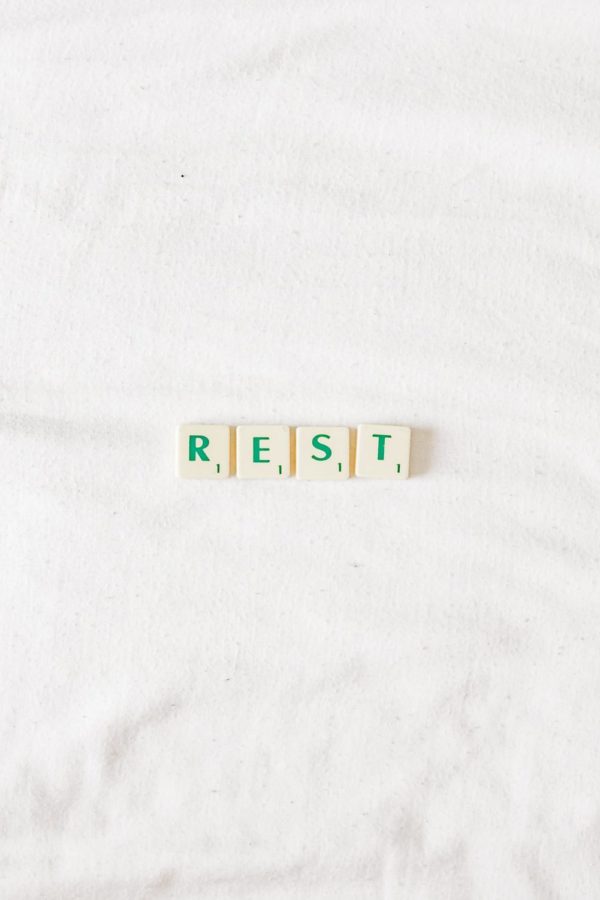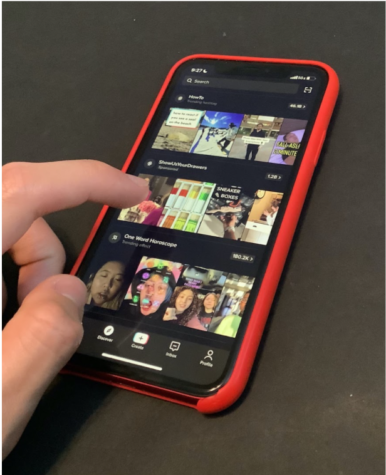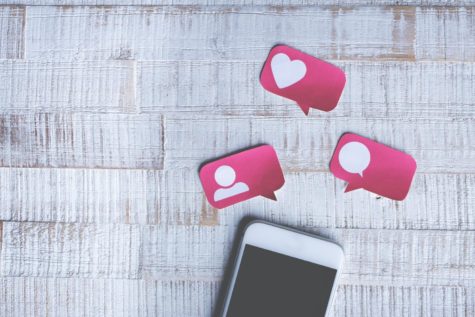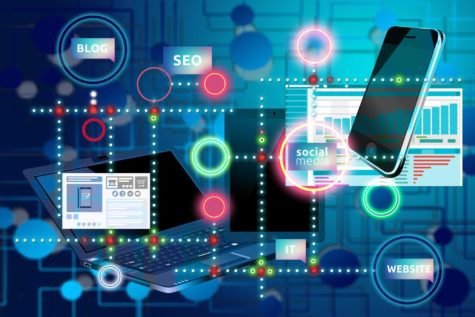Doing Nothing Actually Benefits You
Maybe it comes with age, and, subsequently, a wider view of the world, but I have found that my life has been overwhelmed with screen time and news consumption in the past two years. Around March of 2020, I realized the influx of information that I was constantly absorbing. All the news about COVID and politics came in an influx of stimuli into my mind, causing an increase in anxiety and stress as well.
Reflecting back on the beginning of the coronavirus pandemic, I realize that one of the biggest changes I made was the amount of time I spent connected to my phone or laptop on a daily basis. For me, it felt as if I was constantly surrounded by headlines bringing new perspectives to the ever-changing scientific discoveries being made, while on the other hand there were people who were politicizing the actions necessary to solve the issues at hand. From a hostile transfer of presidential power to economic hardships, an inability to procure necessities, and civil rights protests all around the country, we as a nation were being bombarded from all fronts with life-changing information. I remember feeling incredibly anxious, on edge, and restless constantly day in and day out, while adjusting to the new environment of distance learning and quarantine. With distance learning, it was as if you were exposed to a twenty-four-hour stream of new assignments being posted and graded. School and home were in a tug-of-war for my attention, with school ultimately winning. Additionally, since I was on my devices throughout the day, I had access to all the assignment and headline notifications, which disrupted my peace of mind.
Current teens, specifically, share such a unique and special connection to their devices, which I think that no other generation would be able to understand. Growing up with all this advanced-smart technology around us, from smartphones to laptops, kids in the twenty-first century have had perpetual exposure throughout their lives, leading their relationship with technology to be incompatible with that of any other previous generation. In addition, the minds of teens and people, in general, are so malleable that you would be able to establish healthy precedents and habits early in your life for your future.
Let me paint a picture of the reality that students face, that sometimes it may be impossible to truly take an efficient break because of all of the constant pressure and nagging thoughts that are imposed onto us, but that we also impose on ourselves at times. Providing the real reason as to why a person may not be able to decharge and relax, although they have taken a “break”. While I am saying that breaks are essential to our wellbeing and the healing of our brains, on occasion it may not be as effective as one would desire.
Societal pressures may also be a cause of stress imposition on students and people in general. While reflecting I thought of the question: what would I do if I were to actually take a break? I realized that even if I had a physical break where my teachers didn’t assign me any homework I still wouldn’t be able to fully relax and decharge due to the very “go, go, go” nature of our lives. It was clear that even if I didn’t have to complete any immediate assignments I would still be stressing about expectations and future events. For example, let’s say I have Winter Break to myself. Although I don’t have any immediate things that I need to complete, I would still be stressing about summer internships and opportunities (and their applications), upcoming AP exams, finals, the following school year, scheduling issues, and how to enforce a balance in my life. Considering that none of the things I mentioned are extremely pressing issues I will still have a voice constantly providing me with a list of ongoing things that I need to complete and think about, in turn preventing me from fully letting go of my stresses in order to take a break. The fear of taking a break comes from forces within our society. We receive messages that constant work leads to success while slowing down limits productivity, or failing to achieve our goals.
When you look at the societal and educational systems that we are a part of (regardless of private and public), you see a constant push for more. When you are in middle school you are told to push through because establishing good work ethics will lead to your success in high school. When you are in high school you are told to have good grades and establish a complimentary resume so that you can get into a good college. When you are in college you are told to push through four, and for the most part more, years of school in order to set yourself up for a good job. When you are working you are told to prioritize your work success over your own mental and physical well-being, in order to have a nice salary and to live a good life. What I’m trying to point out here is that the push and demand never stops. Looking into my future I don’t see a point where I will be able to say “okay, I’m good, now I can rest, or enjoy what my life has to offer”. If we are not compelled to take breaks and are not prompted to do anything but work, at an unsustainable pace, for the rest of our lives, then we must acknowledge that burnout, anxiety, and overwhelmingness are inevitable. So I hope to motivate a conversation as to why we live in a world where we don’t take breaks. Why is there a constant cycle of stress and burden on our shoulders, without anything to alleviate some of it?
That March I remember my mom telling me to “sit and do nothing” (as you know moms are always right). At first, I didn’t understand the ultimate purpose of doing that or even its necessity. However, I realize now how powerful a tool it can be to reflect rather than to consume. Acknowledging the idea that you will most likely not be able to have no thoughts/shut out all thoughts, I would say that not thinking is not the purpose of the habit, but to allow your brain to heal and have a moment of calm. It seems as if our lives have been filled with a lot of rushed initiatives, rather than intentional and purposeful interactions. By sitting down and not looking at your phone, talking to someone, dozing off, and reading you are able to take a moment for yourself, realizing the importance of allowing your mind to heal. That period of rest is very important for our mental health and psyche.
Listening to and taking care of our bodies is essential to ensure that we remain as physically and mentally fit as possible. For example, if you were to sprain your ankle or wrist would you keep exerting it? Or would you go to a doctor to get it checked out? Reasonably, you would most likely go to a doctor to prevent your ankle or wrist from getting further injured. Think of treating and taking care of your brain in the same light. Some examples of caring for your brain would be taking a nap or a walk to recharge. In my personal experience activities such as sports, dancing, or playing music also help to decharge and turn your brain off for a certain amount of time. Through focusing on the activity at hand, trying your best in that activity, and allocating your full concentration to it, you will be able to put all other thoughts on the backburner. By doing such, healthy habits and forms of recovery are established to combat and prevent increased anxiety and stress produced through increased stimulus input.
Class of 2024: Melis is the editor-in-chief of the Journalism club and the Yearbook liaison for the BIM Bulletin. Her focus will be on opinion pieces relating...






